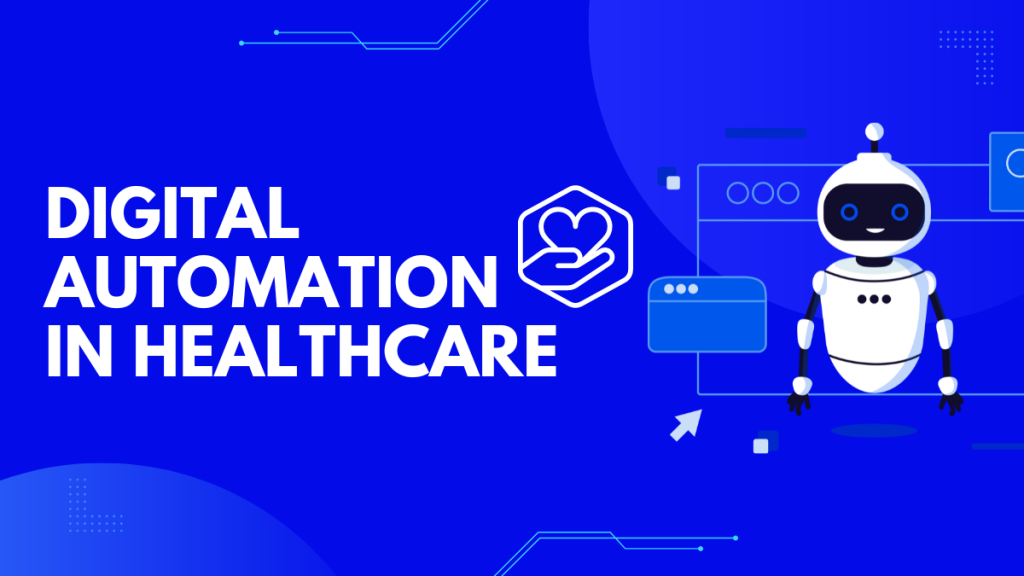The healthcare industry has witnessed a significant transformation in its operations due to the advent of digital automation nowadays. Healthcare providers are leveraging automation solutions to streamline processes, enhance efficiency, and improve patient care with the advancements in technology.
This article explores the various ways in which digital automation is revolutionizing business operations in the healthcare sector.
Benefits of Digital Automation in the Healthcare
Streamlining Administrative Tasks with Automation
One of the key areas where digital automation has made a profound impact is in streamlining administrative tasks. The administration has now become more fluent with the use of digital automation because record keeping of thousands of patients is simplified. Healthcare organizations often face a heavy administrative burden, involving patient registration, appointment scheduling, billing, and documentation. Due to the implementation of the automation system. These processes can now be streamlined, reducing the need for manual intervention and minimizing errors.
Appointment Scheduling Made Easy
Digital automation has simplified the appointment scheduling process for both patients and healthcare providers. Automated scheduling software allows patients to book appointments online, eliminating the need for phone calls and long waiting times. The system can automatically assign available slots, send appointment reminders, and update the provider’s schedule in real-time. This saves time, improves patient satisfaction, and reduces no-show rates.
Efficient Billing and Documentation
Automation has also revolutionized billing and documentation practices in healthcare. Advanced billing systems can generate accurate invoices, process insurance claims, and handle payment transactions seamlessly. Moreover, automation tools can extract relevant information from medical records and automatically populate electronic health records (EHRs), reducing the time and effort required for manual data entry. This guarantees healthcare professionals access up-to-date and comprehensive patient information, enabling better decision-making and coordinated care.
Enhancing Patient Care with Digital Automation
Apart from administrative tasks, digital automation is enhancing the quality of patient care in numerous ways. Healthcare providers can deliver more personalized, efficient, and effective care to their patients by using digital automation technology.
Remote Patient Monitoring
Digital automation enables remote patient monitoring, which has become increasingly important, especially during the COVID-19 pandemic. Patients are monitored in a significant way by using automation tools. Through wearable devices and connected sensors, healthcare professionals can remotely monitor vital signs, track patient progress, and detect early warning signs of deterioration. This improves patient outcomes and reduces the need for frequent hospital visits, ultimately lowering healthcare costs.
AI-powered Diagnosis and Treatment
Latest artificial Intelligence (AI) software playing a transformative role in healthcare, particularly in the field of diagnosis and treatment. AI algorithms can analyze large datasets, including medical images, patient records, and research papers, to assist healthcare professionals in making accurate diagnoses and developing personalized treatment plans. Machine Learning algorithms can also continuously learn and adapt, improving their accuracy over time. This implementation of AI in healthcare system has the potential to revolutionize patient care and significantly reduce medical errors.
Read Also: Cheerful Belly, Blissful Life: Ways to deal with Your Stomach

The Future of Digital Automation in Healthcare
As technology continues to evolve, the future of digital automation in healthcare holds immense potential. Here are a few areas where automation is expected to make further strides:
Robotics in Surgery
Robotic surgery has already gained traction in the healthcare industry. Surgeons can utilize robotic systems to perform complex procedures with precision and control, resulting in fewer complications, reduced hospital stays, and faster recovery times. With advancements in robotic technology, the potential for automation to transform surgical outcomes is promising.
Predictive Analytics for Preventive Care
Combined with automation, predictive analytics can help identify individuals at high risk for certain diseases or conditions. By analyzing patient data and health trends, healthcare providers can intervene proactively, offering preventive care and interventions before a condition worsens. Digital automation has the potential to improve population health outcomes and reduce healthcare costs significantly.
Telemedicine and Virtual Care
Telemedicine has seen rapid-growth in recent years, and digital automation will continue to drive its expansion. With remote consultations, online prescription refills, and virtual monitoring, patients can access healthcare services from the comfort of their homes. This not only improves convenience and accessibility but also enables healthcare providers to reach underserved populations and rural areas more effectively.
Conclusion
Digital automation technology is modernizing the healthcare landscape, revolutionizing business operations, and transforming how patient care is delivered. By streamlining administrative tasks, enhancing patient care, record keeping, and paving the way for future innovations, automation drives efficiency, improves outcomes, and ultimately provides better healthcare experiences for patients. As technology advances further, we can expect even more significant advancements in the healthcare industry, making it an exciting time for digital automation and its impact on healthcare. Embracing these innovations will undoubtedly help healthcare organizations stay at the forefront and deliver exceptional care in an increasingly automated world.

